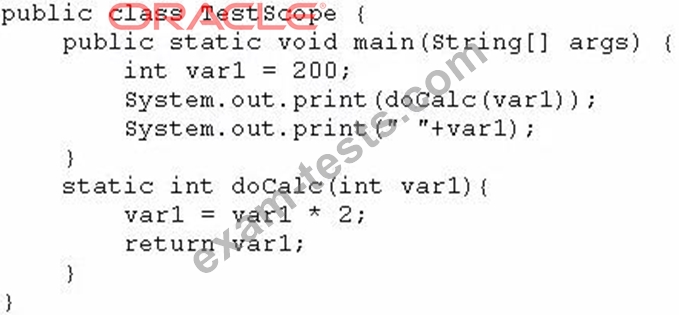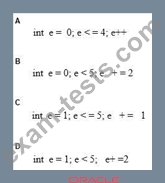Question 61
Given:
import java.util.*;
public class Ref {
public static void main(String[] args) {
StringBuilder s1 = new StringBuilder("Hello Java!");
String s2 = s1.toString();
List<String> lst = new ArrayList<String>();
lst.add(s2);
System.out.println(s1.getClass());
System.out.println(s2.getClass());
System.out.println(lst.getClass());
}
}
What is the result?
import java.util.*;
public class Ref {
public static void main(String[] args) {
StringBuilder s1 = new StringBuilder("Hello Java!");
String s2 = s1.toString();
List<String> lst = new ArrayList<String>();
lst.add(s2);
System.out.println(s1.getClass());
System.out.println(s2.getClass());
System.out.println(lst.getClass());
}
}
What is the result?
Question 62
Given the following array:

Which two code fragments, independently, print each element in this array? (Choose two.) A:

B:

C:

D:

E:

F:


Which two code fragments, independently, print each element in this array? (Choose two.) A:

B:

C:

D:

E:

F:

Question 63
Given:

What is the result?

What is the result?
Question 64
Given the code fragment:

Which option can replace xxx to enable the code to print 135?


Which option can replace xxx to enable the code to print 135?

Question 65
Which three statements describe the object-oriented features of the Java language?

